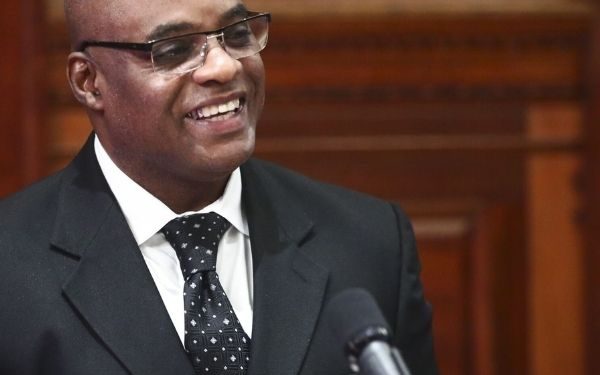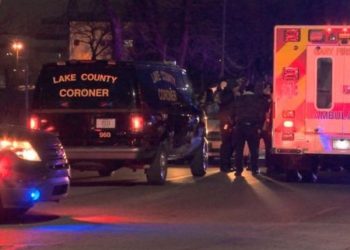New Jersey’s latest clemency wave includes people with decades-old nonviolent convictions and others who have shown lasting rehabilitation.
TRENTON, N.J. — On September 9, 2025, Governor Phil Murphy announced pardons for 40 people in the third round of clemency actions, raising the total granted during his administration to 169.
These pardons follow the creation of New Jersey’s Clemency Advisory Board, established under Executive Order No. 362 in 2024. Chaired by Bishop Joshua Rodriguez, the board reviews applications and recommends candidates based on rehabilitation, experiences of trafficking or abuse, and outdated sentencing laws.
Since the order took effect, more than 4,500 applications have been submitted.
“As the State for Second Chances, we pride ourselves on recognizing the power of redemption,” Murphy said. “Offering people a fresh start is one of my greatest responsibilities as Governor—and one I take seriously. I’m grateful to Bishop Rodriguez, the Clemency Advisory Board, and my team for their careful review of every application. Together, we are ensuring justice in New Jersey reflects both public safety and the belief in second chances.”
Background on Clemency Policy
The New Jersey Constitution gives the Governor broad authority to issue pardons and commutations. For the first time, the Clemency Advisory Board provides a formal review system to guide those decisions.
The board gives priority to:
-
People with nonviolent convictions who have stayed out of the justice system for years
-
Those penalized harshly for exercising their right to trial
-
Survivors of domestic violence, sexual violence, or trafficking whose crimes were tied to abuse
“Clemency is not about ignoring mistakes—it’s about recognizing change, redemption, and the power of a second chance,” said Bishop Rodriguez.
The Case of Clourer Grady
Among those pardoned is 72-year-old Clourer Grady, convicted of multiple drug-related offenses between 1989 and 1993. She said her past stemmed from substance use disorder, which she later overcame.
After serving her sentence, she completed treatment, became a certified drug and alcohol counselor, and worked for more than 17 years leading a family reunification program at Trinitas Regional Medical Center. In 2014, she earned a Bachelor of Arts from Thomas Edison State University.
“Any time I think about receiving a pardon I start to cry,” Grady said. “After four years of trying to clear my record, to hear the Governor say he signed a full pardon for me is a blessing. It makes these last 30 years of being productive and helping others so rewarding.”
Overview of Pardoned Offenses
The offenses span from the 1970s through the early 2010s. Most involve nonviolent drug crimes, theft, or probation violations. Some include weapons, robbery, or aggravated assault, with mitigating circumstances or proof of rehabilitation taken into account.
The full list of individuals pardoned includes: Leigh Alzapiedi, Shaib Brown, Emily Cruz, Alain Denis, Tyrone Duckett, Nicholas Falletta, Stacey Forte, Steven Gaston, Rodney Goss, Clourer Grady, Timothy Granzow, Patrice Hilaire, Mario Ibrahim, Schulyer Jackson, Linda Kelsey, David Benjamin Kornacki Jr., Christopher Lascala, Wilbert Majette Jr., Chanti Matthews, William Matunda III, Naquan McAllister, Charlotte McCoy, Anthony Millan Jr., Pedro Monserrate, Scott Muro, John Petruska, Denise Reid, Fronz Roberts, Kyle Roche, Robert Salek, Alejandro Saralvarez, Joseph Sarappa, Markim Skakur-Purvis, Marc Shelton, Charles Thompson, Raymond Throckmorton, Matthew Tursi, Tanell Waller, Richard Woolfolk, and Rachel Worthington.
“Mercy unapologetically affirms the inherent worth of our beloveds in the face of rising authoritarianism,” said Charlene D. Walker, Executive Director of Faith in New Jersey. “Today’s pardons disrupt a system that cages and dehumanizes, allowing people to heal with their families and transform their communities. We celebrate captives set free. May they know freedom in their bones.”
Clemency Application Process
The clemency program is ongoing, and applicants can apply directly through the state portal. Details on eligibility and instructions are available at www.nj.gov/clemency.
New Jersey’s initiative continues to address sentencing disparities, acknowledge rehabilitation, and extend second chances to people who have shown personal transformation.
This article has been carefully fact-checked by our editorial team to ensure accuracy and eliminate any misleading information. We are committed to maintaining the highest standards of integrity in our content.








